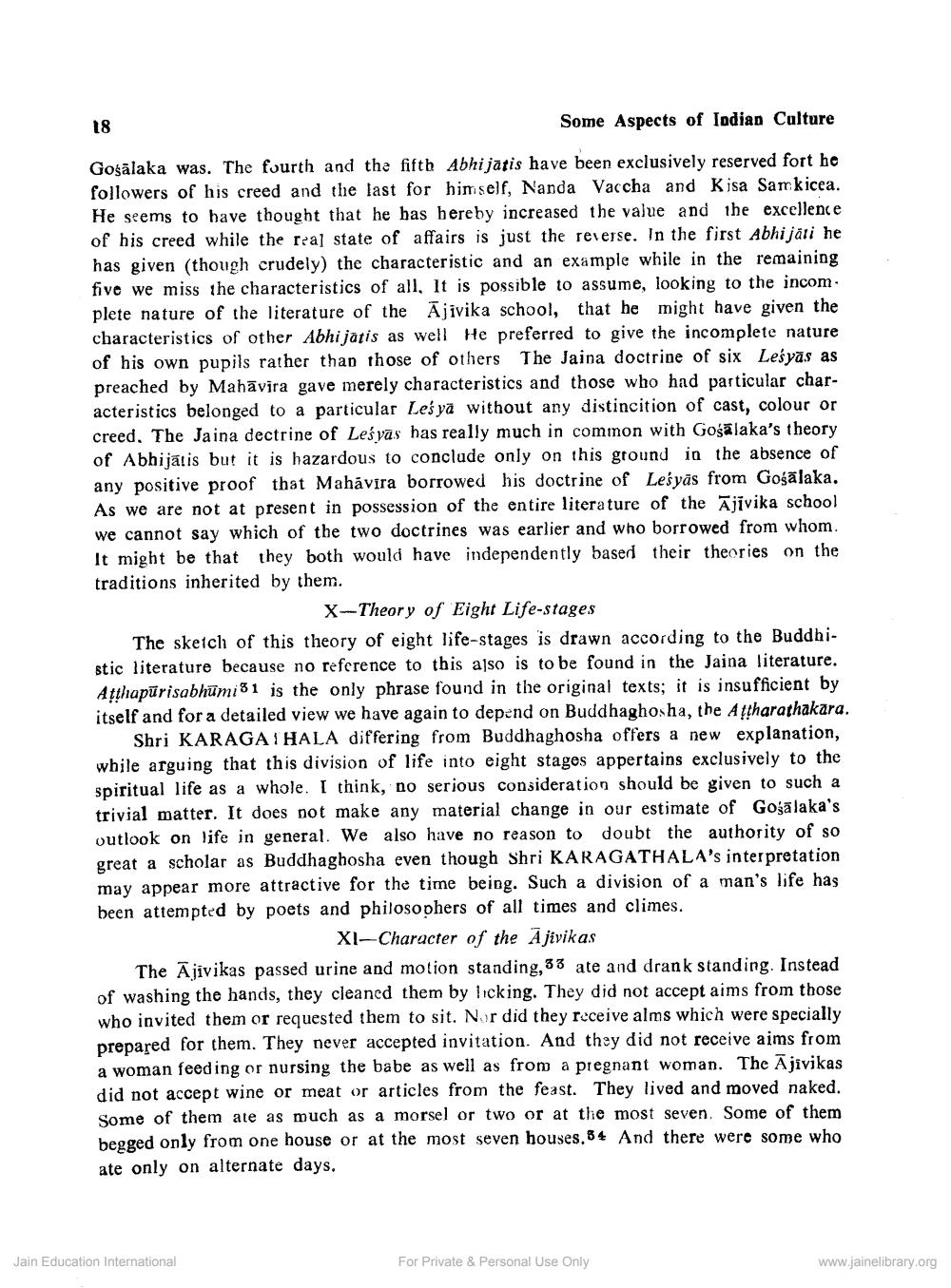________________
Some Aspects of Indian Culture
Gosalaka was. The fourth and the fifth Abhijatis have been exclusively reserved fort he followers of his creed and the last for himself, Nanda Vaccha and Kisa Samkicea. He seems to have thought that he has hereby increased the value and the excellence of his creed while the real state of affairs is just the reverse. In the first Abhijāti he has given (though crudely) the characteristic and an example while in the remaining five we miss the characteristics of all. It is possible to assume, looking to the incom. plete nature of the literature of the Ajivika school, that he might have given the characteristics of other Abhijatis as well He preferred to give the incomplete nature. of his own pupils rather than those of others The Jaina doctrine of six Lesyās as preached by Mahavira gave merely characteristics and those who had particular characteristics belonged to a particular Leiya without any distincition of cast, colour or creed. The Jaina dectrine of Lelyas has really much in common with Golaka's theory of Abhijatis but it is hazardous to conclude only on this ground in the absence of any positive proof that Mahavira borrowed his doctrine of Leiyas from Gojalaka. As we are not at present in possession of the entire literature of the Ajivika school we cannot say which of the two doctrines was earlier and who borrowed from whom. It might be that they both would have independently based their theories on the traditions inherited by them.
18
X-Theory of Eight Life-stages
The sketch of this theory of eight life-stages is drawn according to the Buddhistic literature because no reference to this also is to be found in the Jaina literature. Athapürisabhumi31 is the only phrase found in the original texts; it is insufficient by itself and for a detailed view we have again to depend on Buddhaghosha, the Atharathakara. Shri KARAGA HALA differing from Buddhaghosha offers a new explanation, while arguing that this division of life into eight stages appertains exclusively to the spiritual life as a whole. I think, no serious consideration should be given to such at trivial matter. It does not make any material change in our estimate of Gogalaka's outlook on life in general. We also have no reason to doubt the authority of so great a scholar as Buddhaghosha even though Shri KARAGATHALA's interpretation may appear more attractive for the time being. Such a division of a man's life has been attempted by poets and philosophers of all times and climes.
XI-Character of the Avikas
The Ajivikas passed urine and motion standing, 88 ate and drank standing. Instead of washing the hands, they cleaned them by licking. They did not accept aims from those who invited them or requested them to sit. Nor did they receive alms which were specially prepared for them. They never accepted invitation. And they did not receive aims from a woman feeding or nursing the babe as well as from a pregnant woman. The Ajivikas did not accept wine or meat or articles from the feast. They lived and moved naked. Some of them ate as much as a morsel or two or at the most seven. Some of them begged only from one house or at the most seven houses.
And there were some who
ate only on alternate days.
Jain Education International
For Private & Personal Use Only
www.jainelibrary.org




